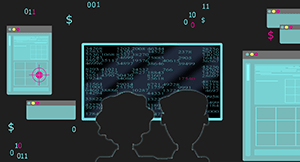
As we embark on a new decade, it’s a safe bet technology will only continue to flourish around us. It will continue to change the world we live in, sometimes for the better and sometimes for worse. Our conversations in 2020 will center around technology’s effect on K12 education.
Can technology help teach soft skills?
Empathy is the understanding someone else’s world is as real as yours. The internet has created a global network allowing us to broaden empathy outside our immediate local realm, but technology as we know it today falls short of fostering the emotional intelligence and soft skills humans need to relate to each other.The Hidden Brain podcast covered this topic in summer of 2019. They found that while technology can open the world to people, anonymous interactions do not favor empathy. One particularly vitriolic example, the comment section of a news site, shows us that anonymous interaction inhibits our ability to detect each other’s real humanity. Users are dehumanized behind avatars and treat each other accordingly. Not only do anonymous interactions fail to teach empathy, but they actively backfire and lead to diminished social-emotional development.
Teachers face a challenge in managing empathy in their daily interactions with students. They’re stuck in the double-bind of caring professions: they must care for other people, which takes valuable personal energy, or become numb and turn their empathy off. They must develop their own resilience in order to function, and that development can provide invaluable insight to students just learning social-emotional skills such as resilience, productive failure, and adaptability.
When should school districts prepare for a ransomware attack?
This fall, an Illinois school district spent three weeks recovering from a ransomware attack. They rebuilt thousands of computers and wireless access points, along with hundreds of servers. As technology leaders reflected on the experience, they noted the attack they experienced was just one example of “a serious global issue… this is organized crime.”Why do hackers target schools? Several reasons: kids’ data is pristine, for the most part. Schools have a high concentration of valuable data and many have easily fooled safeguards in place. This provides an easy in for hackers—and a big payoff.
The number of schools using 1:1 technology, whether the devices are assigned by the district or brought from home, has also increased. These programs are widely celebrated and many make local news stories. They represent a tremendous amount of effort and care, from budgeting to distribution to maintenance. They also represent a way for hackers to slip into the school’s network, masquerading as a student device. Schools are beginning to invest more heavily in device identification, so they know each and every device connected to their network belongs there.
But the most important safeguard of all, and the drum we’ll continue to beat well into the new decade, is the humble backup. Not an online backup—in fact, hackers have figured out how to infiltrate those pretty easily. The offsite, offline backup represents the golden key to surviving a ransomware attack. Even if some recent data is sacrificed, it’s the best chance of recovering stolen data.
How can we measure software effectiveness?
Software is one of the most intense investments a district makes. It’s expensive. It’s time consuming to set up. And for the most part, it’s used every day at multiple levels by people with wildly different roles. Data about how edtech is actually used is hard to come by, steeped in bias, and largely left to opinion.In the new year, we’ll discuss how districts are identifying ways to measure edtech efficacy fairly and accurately. Tech leaders need the opportunity to make data-driven decisions about technology, culture, and processes.
Follow-up resource: Subscribe for more
Want to stay on top of the latest developments in these and other important topics shaping the K–12 landscape? Subscribe to our monthly Advancing K12 newsletter.WHAT'S NEXT FOR YOUR EDTECH? The right combo of tools & support retains staff and serves students better. We'd love to help. Visit skyward.com/get-started to learn more.

|
Erin Werra Blogger, Researcher, and Edvocate |
Erin Werra is a content writer and strategist at Skyward’s Advancing K12 blog. Her writing about K12 edtech, data, security, social-emotional learning, and leadership has appeared in THE Journal, District Administration, eSchool News, and more. She enjoys puzzling over details to make K12 edtech info accessible for all. Outside of edtech, she’s waxing poetic about motherhood, personality traits, and self-growth.





